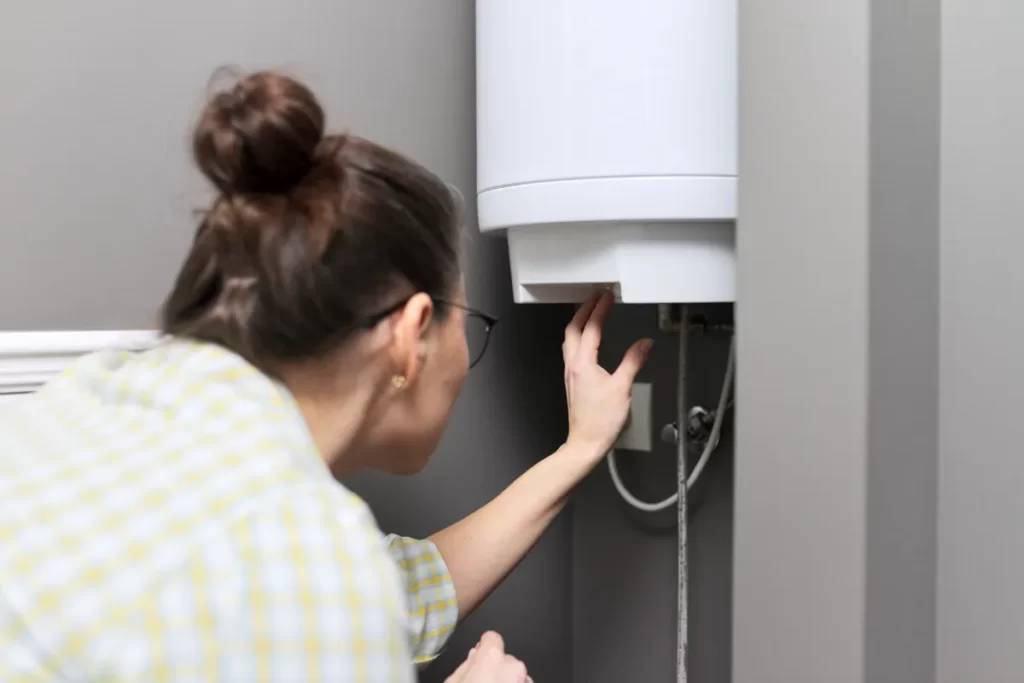Are you tired of waiting for hot water to flow from your taps or showerheads? Do you want an energy-efficient and cost-saving solution for your hot water needs? Look no further than demand water heaters, also known as tankless water heaters.
These innovative systems are rapidly becoming a popular choice for homeowners seeking an on-demand supply of hot water. They offer a more efficient and cost-effective alternative to traditional water heaters that require a tank to store and heat water.
With demand water heaters, you can enjoy a continuous supply of hot water, and they only heat water when you need it. This results in energy savings and reduced utility bills, making them an environmentally friendly option.
Key Takeaways:
- Tankless water heaters, or demand water heaters, provide an on-demand supply of hot water.
- They are energy-efficient and cost-saving, reducing utility bills.
- Demand water heaters only heat water when needed, resulting in a continuous supply of hot water.
Understanding Demand Water Heaters: How They Work and Their Benefits
At their core, demand water heaters are efficient technologies that provide hot water on demand without the need for a storage tank. When you turn on the hot water tap, the tankless water heater heats the water as it flows through the unit, delivering hot water to your faucet in a matter of seconds.
This is a significant contrast from traditional water heaters, which constantly heat and store water even when it isn’t needed.
There are a few key benefits to using tankless water heaters. First and foremost, they are incredibly energy-efficient compared to traditional water heaters.
This is because they only heat water when it is needed, eliminating the constant energy consumption of a storage tank. Plus, the lack of a storage tank saves space in your home and eliminates the risk of tank leaks or ruptures.
Another advantage of demand water heaters is their ability to provide an endless supply of hot water. Unlike traditional water heaters that can run out of hot water if the tank is depleted, tankless water heaters provide continuous hot water for as long as the faucet is running.
This makes them ideal for large families or homes with high hot water demand.
In addition to their energy efficiency and continuous hot water supply, tankless water heaters are also known for their longevity. With proper installation and maintenance, demand water heaters can last up to 20 years, compared to the 10-15 year lifespan of traditional water heaters.
Overall, demand water heaters are efficient technologies that offer numerous benefits, including energy savings, continuous hot water supply, and space-saving design. By choosing a tankless water heater, you can enjoy these benefits while also reducing your carbon footprint and improving your home’s overall energy efficiency.
Installation and Maintenance: Tips for Maximizing the Benefits of Demand Water Heaters
Installing and maintaining your demand water heater correctly is crucial in maximizing its benefits. Here are some tips to ensure optimal performance and longevity of your tankless water heater.
Proper Installation
Proper installation of your demand water heater is essential in ensuring its efficiency and longevity. It is vital to have your water heater installed by a professional. A licensed plumber can install the unit according to the manufacturer’s instructions and local building codes.
It is also imperative to choose the right size and type of water heater suitable for your household’s hot water demand. A professional installer can help you determine the correct size and type of demand water heater that will meet your household’s hot water needs.
Maintenance
Regular maintenance of your demand water heater can help extend its lifespan and optimize its performance. Here are some tips:
- Flush out your water heater regularly to remove mineral buildup that can affect its efficiency.
- Check the unit’s ventilation system yearly to ensure it is not blocked or obstructed.
- Inspect gas connections and electrical wiring to ensure they are secure and in good condition.
- Replace the unit’s air filter yearly to prevent dust buildup that can affect its performance.
By following these installation and maintenance tips, you can ensure your demand water heater is working efficiently and providing on-demand warmth when you need it.
Conclusion
At the end of the day, demand water heaters offer an unparalleled level of convenience and comfort. They are an efficient and cost-saving technology for homes of all sizes, providing on-demand warmth whenever you need it.
By now, you should understand how demand water heaters work and their many benefits, including energy savings and continuous hot water supply. Remember that proper installation and maintenance are crucial to maximizing the advantages of tankless water heaters.
We encourage you to embrace the convenience of demand water heaters and enjoy the comfort of on-demand warmth in your home.
With this technology, you can have the peace of mind of knowing that you can have hot water whenever you need it, without any waiting time or running out of hot water. Investing in a demand water heater is a wise decision that will pay off in the long run, both in terms of comfort and financial savings.
So if you’re looking for a reliable and efficient way to heat your water, consider a tankless water heater. You won’t be disappointed!



